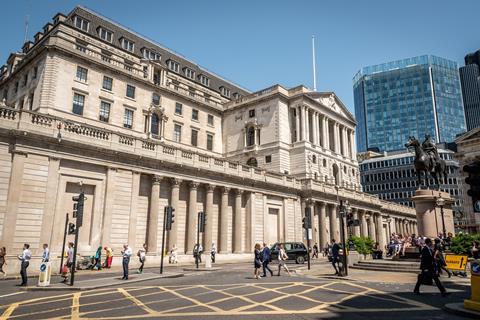UK Government and BoE Pledge to Curb Inflation, Indicate High-Interest Rates May Persist
The UK’s Finance Minister, Jeremy Hunt, has recently confirmed the government’s and the Bank of England’s (BoE) commitment to managing inflation and returning it to its 2% target. This assurance indicates that high-interest rates could persist for an extended period, a critical factor for businesses, investors, and consumers alike.
Speaking at the annual Mansion House dinner in the City of London, Hunt addressed finance executives, emphasizing that maintaining stable finances was the government’s primary concern. This commitment to financial stability underscores the government’s intent to keep the economy on a firm footing despite the challenges posed by inflation.
BoE Governor Andrew Bailey, who was also present at the event, pledged his dedication to reducing inflation, demonstrating a united front between the government and the Bank of England. Their combined efforts and shared goal signal a strong intent to tackle the inflation issue head-on.
Inflation in the UK had reached a 41-year peak of 11.1% in October, a rate slower to decrease compared to other major economies. In a move that surprised the market, the BoE raised its key interest rate by half a percentage point to 5% last month, following an inflation rate of 8.7% in May. This decision was an attempt to curb rising prices and stabilize the economy.
Since then, Governor Bailey has suggested that interest rates might remain at their peak for some time. However, he has not provided clear indications of how high this peak might be. Market predictions suggest rates could reach 6.25% or even 6.5% later this year or early in 2024. These potential rates underline the seriousness of the inflation problem and the lengths the BoE is willing to go to address it.
Earlier this year, Prime Minister Rishi Sunak set an ambitious goal to halve inflation, a target that now seems challenging given the current economic climate. Despite this, Hunt reiterated the government’s commitment to tackling persistent inflation and returning it to the 2% target. His speech, which primarily focused on changes in the UK’s pension sector, reflected the government’s broader economic strategy.
Hunt also urged businesses to exercise restraint concerning profit margins, warning that increasing margins could fuel inflation. He emphasized that combating inflation would take precedence over tax cuts, a move desired by many Conservative Party lawmakers to boost their political standing ahead of the expected national election next year.
The government’s upcoming announcement on pay rises is likely to disappoint public-sector workers. Hunt argued that responsible decisions on public finances, including public sector pay, were crucial to curb inflation because more borrowing can fuel inflation, echoing previous statements on this issue.
Trade unions have contested the impact of public-sector pay raises on inflation, arguing that higher costs for public services do not directly contribute to consumer price inflation. They also pointed out that the government has the option to raise taxes to fund these increases, adding another layer to this complex economic situation.

.webp)



